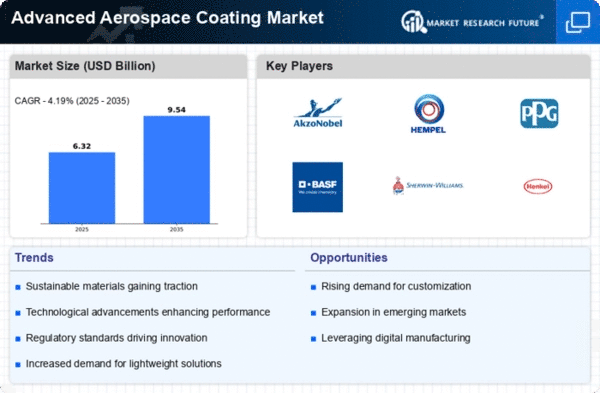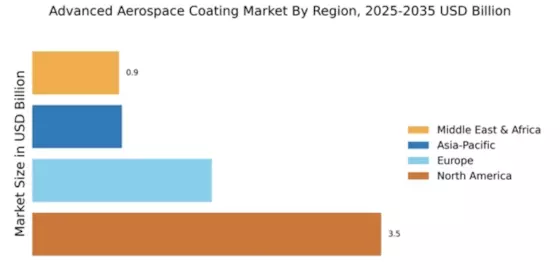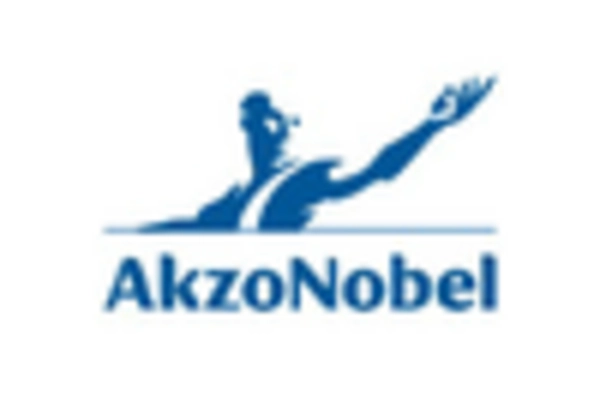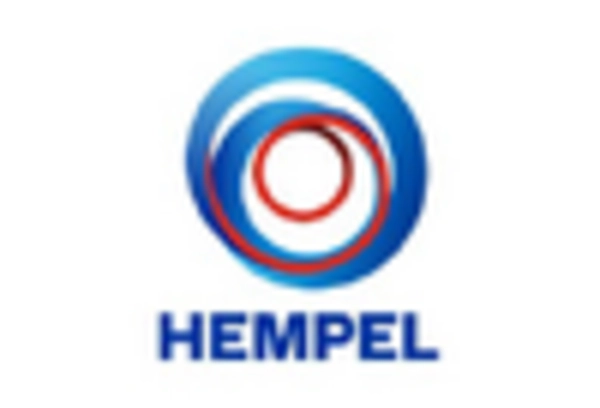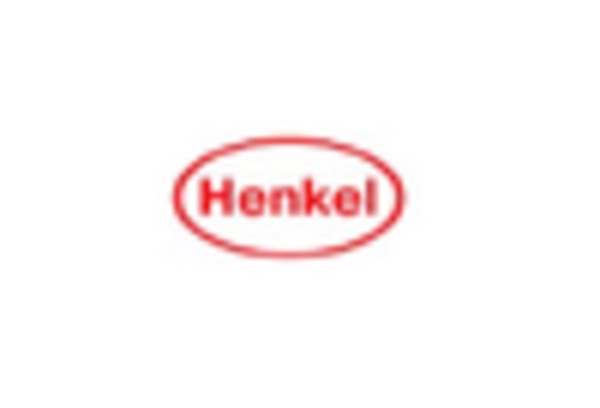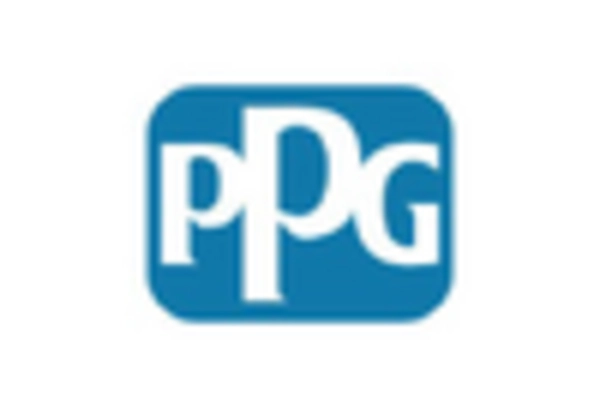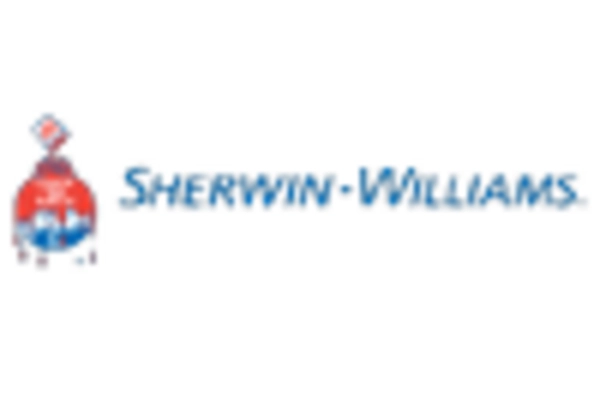Focus on Enhanced Aesthetic Appeal
The Global Advanced Aerospace Coating Market Industry is also influenced by a growing focus on the aesthetic appeal of aircraft. Airlines are increasingly investing in visually appealing designs to attract customers and differentiate themselves in a competitive market. Advanced coatings that offer vibrant colors, gloss finishes, and unique textures are becoming popular choices for aircraft exteriors. This trend not only enhances the visual appeal but also provides protective benefits, contributing to the overall market growth as manufacturers seek to balance aesthetics with functionality.
Growing Demand for Lightweight Materials
The Global Advanced Aerospace Coating Market Industry is experiencing a notable increase in demand for lightweight materials, driven by the aerospace sector's focus on enhancing fuel efficiency and performance. Lightweight coatings contribute to reducing the overall weight of aircraft, which is crucial for lowering fuel consumption and emissions. As airlines and manufacturers strive to meet stringent environmental regulations, the adoption of advanced coatings that offer both weight reduction and durability is likely to rise. This trend is reflected in the projected market growth, with the Global Advanced Aerospace Coating Market expected to reach 6.07 USD Billion in 2024.
Technological Advancements in Coating Solutions
Technological innovations in coating solutions are significantly influencing the Global Advanced Aerospace Coating Market Industry. Developments in nanotechnology and smart coatings are enhancing the performance characteristics of aerospace coatings, such as resistance to corrosion, wear, and extreme temperatures. These advancements not only improve the longevity of aircraft components but also reduce maintenance costs, making them attractive to manufacturers. The integration of these technologies is expected to drive market growth, with projections indicating a market size of 9.54 USD Billion by 2035, reflecting a growing preference for high-performance coatings.
Regulatory Compliance and Environmental Standards
The Global Advanced Aerospace Coating Market Industry is increasingly shaped by stringent regulatory compliance and environmental standards. Governments worldwide are implementing regulations aimed at reducing emissions and promoting sustainable practices within the aerospace sector. Advanced aerospace coatings that meet these regulations are becoming essential for manufacturers seeking to maintain compliance while enhancing their product offerings. This regulatory push is likely to drive the adoption of innovative coating solutions that align with environmental goals, thereby contributing to the market's anticipated growth trajectory.
Increasing Aircraft Production and Fleet Expansion
The Global Advanced Aerospace Coating Market Industry is poised for growth due to the rising production of aircraft and the expansion of airline fleets. As global air travel continues to increase, manufacturers are ramping up production to meet demand. This surge in aircraft production necessitates the use of advanced coatings that enhance durability and performance. The market is projected to grow at a CAGR of 4.2% from 2025 to 2035, indicating a robust demand for coatings that can withstand the rigors of flight while ensuring safety and efficiency.


